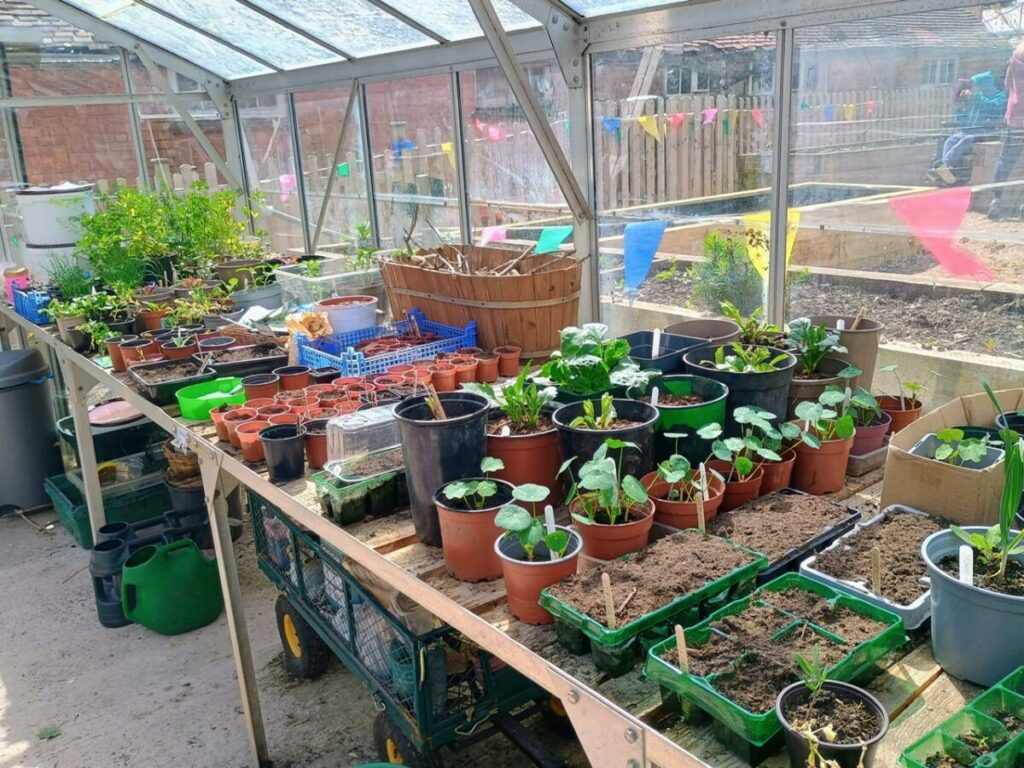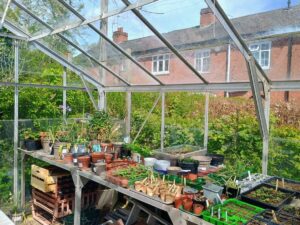
Kanika, one of our wonderful gardening volunteers, shares her thoughts on her recent volunteering at the Carless Eco Centre:
‘I used to find the task of gardening, and even watching gardening shows sleepy and slow. Within sheer moments I’d find myself looking for something else to do, or flicking the channel. However, since I had started to volunteer at Carless Ecology Centre, I had begun to pay more attention to words and their meanings; tendrils, shoots, sprouting, dead heading and the list goes on.

I was not a foodie, but I found myself feeling a new found enthusiasm for the produce I harvested. There was such a stark contrast in flavour, comparative to fruit and vegetables we bought from the supermarket. The vibrant greens and freshness of the courgettes sizzling in the pan, the potency of the garlic cloves bursting amongst the mix of ingredients, and the crunchy punch of intensity of the long runner beans. It brought into question the level of chemicals and pesticides added to produce by farmers to enable them to last from soil to supermarket, as well as to produce them on mass. It really did highlight the importance to one’s health, of eating organically right from your very own garden. It was encouraging for anyone interested or wanting to introduce more plant based options into their diet. It was an opportunity to be more creative with cooking.

I was starting to look forward to my time volunteering at the centre. Having watered the rows of plants, the earthy scents followed me out of the greenhouse into the cooler than summer August air, unusual for this time of year. Sitting on the gravely ground, digging through the large shopper bags filled to the brim with compost, the potatoes appeared, wedged into the dark soil like golden nuggets. All of them different sizes, minute, small, large, medium, round, rotund and oblong. It was no longer a simple harvesting task, and instead, each of the four, large bags, become a trove of treasure. To make the search easier, I emptied out some of the compost into separate plant pots, before re-distributing the pots over the flower beds to re-nourish them. A wasp hovered and hummed right above my head as it tried to feed nectar from the flower bouncing against my head. Like many people, I’m not too fond of wasps because they have tendency to sting indiscriminately (unlike bees) and I usually try to keep my distance. However, today I was so engrossed in my treasure hunt that I just let it be. The wasp didn’t seem bothered or threatened by me, and neither me by it. I could feel and hear it, as its tiny wings brushed the hairs on my head, and the sensation as it buzzed, zooming towards and away from my ears. Both human and animal were able to co-exist side by side. It was a testament to the give and take relationship we have with one another, and the role wildlife plays within nature. As I harvested, the wasp pollinated the plants.

With the sun bearing down on my face, I turned my attention to pulling up some of the weeds. Pinching at the root stem of a large weed, the fronds layered like a pagoda, I slowly tugged at the base to feel for the point of release of the roots from the soil. Pulling the leaves away, I watched as a colony of black ants frantically scrambled for cover, safely, away from the grasp of human hands. Each of the leaves provided an umbrella of protection. I was someone that loved all animals; from the tiniest to the largest, and from domestic to ferocious. Cringing and scrunching up my face, tides of guilt ran through my mind and heart. I had just destroyed their domestic bliss. Composting the weeds I had removed, I decided to move away. Ants are the engineers of the eco-system. A dominant species of insect, they are integral to the role of decomposition, enriching soil to enable oxygen and water to reach the plant roots, and in seed dispersal. These processes allow the ecosystem to stabilise and function effectively, therefore their presence is a good indicator of a healthy and clean environment. I was already learning so much and still had so much to learn.’
Want to find out more? The Carless Eco Centre is open to new volunteers, so if you are interested please get in touch with Justine at education@moorpoolhall.com
Moor Pool Hall
37 The Circle, Harborne,
Birmingham, B17 9DY
Registered Charity Number: 1148252
© 2025 All rights reserved | Website by Citrus Frog